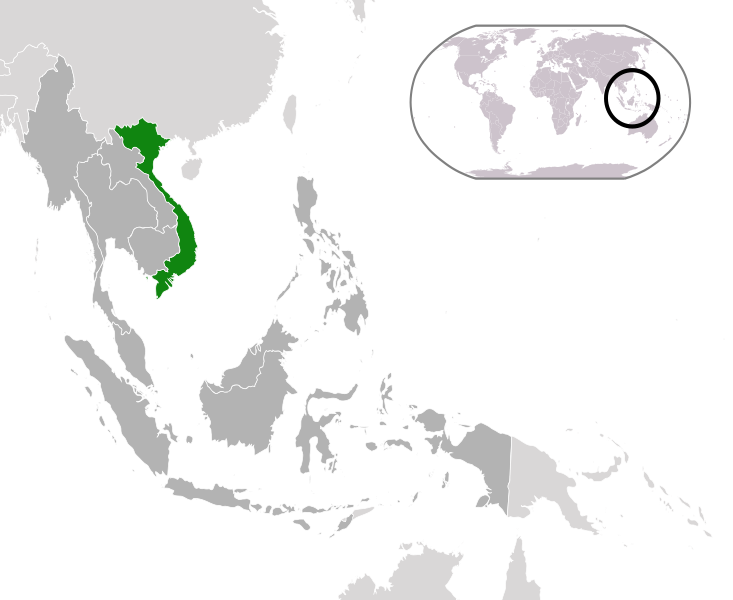 Vietnam (pronounced /ˌviː.ɛtˈnɑːm/ VEE-et-NAHM; Vietnamese: Việt Nam, officially the Socialist Republic of Vietnam (Vietnamese: Cộng hòa xã hội chủ nghĩa Việt Nam, is the easternmost country on the Indochina Peninsula in Southeast Asia. It is bordered by People’s Republic of China (PRC) to the north, Laos to the northwest, Cambodia to the southwest, and the South China Sea, referred to as East Sea (Vietnamese: Biển Đông), to the east.
Vietnam (pronounced /ˌviː.ɛtˈnɑːm/ VEE-et-NAHM; Vietnamese: Việt Nam, officially the Socialist Republic of Vietnam (Vietnamese: Cộng hòa xã hội chủ nghĩa Việt Nam, is the easternmost country on the Indochina Peninsula in Southeast Asia. It is bordered by People’s Republic of China (PRC) to the north, Laos to the northwest, Cambodia to the southwest, and the South China Sea, referred to as East Sea (Vietnamese: Biển Đông), to the east.
With a population of over 86 million, Vietnam is the 13th most populous country in the world.
The people of Vietnam regained independence and broke away from China in AD 938 after their victory at the battle of Bạch Đằng River. Successive dynasties flourished along with geographic and political expansion deeper into Southeast Asia, until it was colonized by the French in the mid-19th century. Efforts to resist the French eventually led to their expulsion from the country in the mid-20th century, leaving a nation divided politically into two countries. Fighting between the two sides continued during the Vietnam War, ending with a North Vietnamese victory in 1975.
Emerging from this prolonged military engagement, the war-ravaged nation was politically isolated. In 1986, the government instituted economic and political reforms and began a path towards international reintegration. By 2000, it had established diplomatic relations with most nations. Its economic growth had been among the highest in the world in the past decade. These efforts resulted in Vietnam joining the World Trade Organization in 2007.
Vietnam is an agricultural civilization based on wet rice cultivation with ancient Dong Son culture as one of its defining aspects. The major stimulation of Vietnamese culture’s development comes from indigenous factors, with Chinese and Indian influence serving to further enrich it. Through history, Cham culture and the cultures of other minority ethnic groups in Vietnam have been integrated with Vietnamese culture in correlated effects.

Notes from Wikipedia








